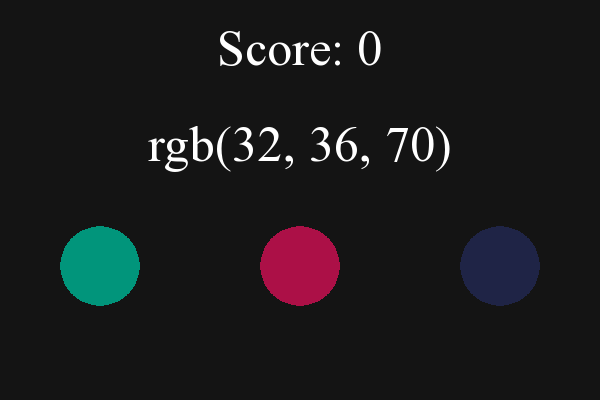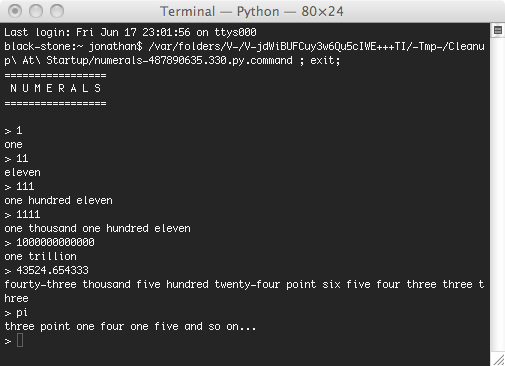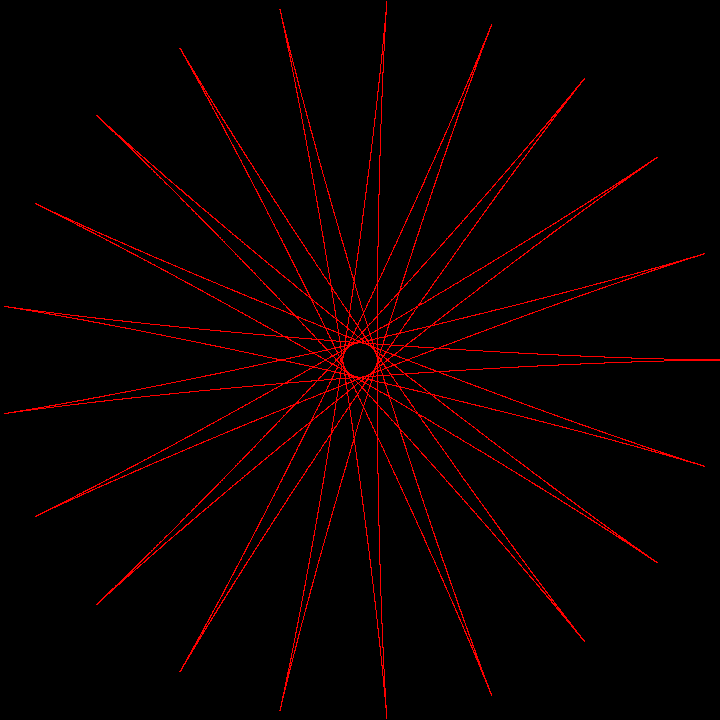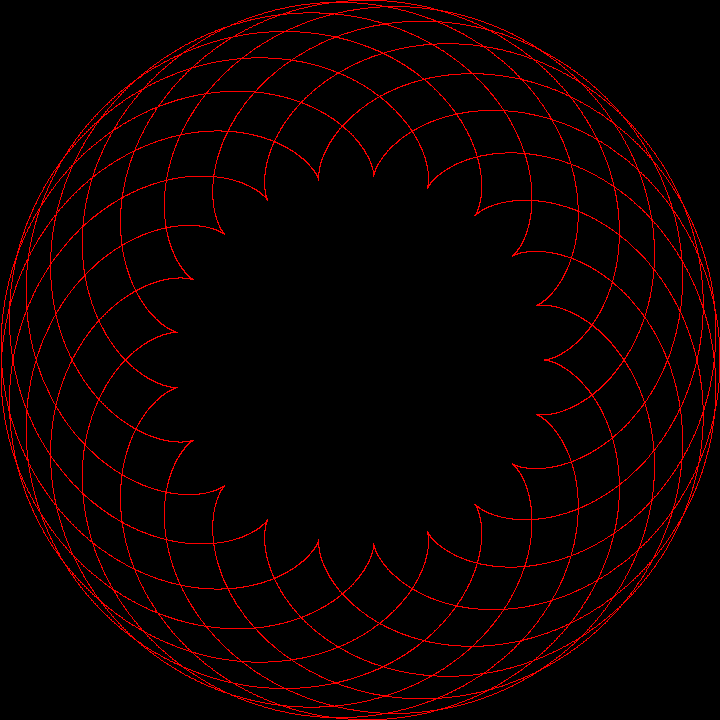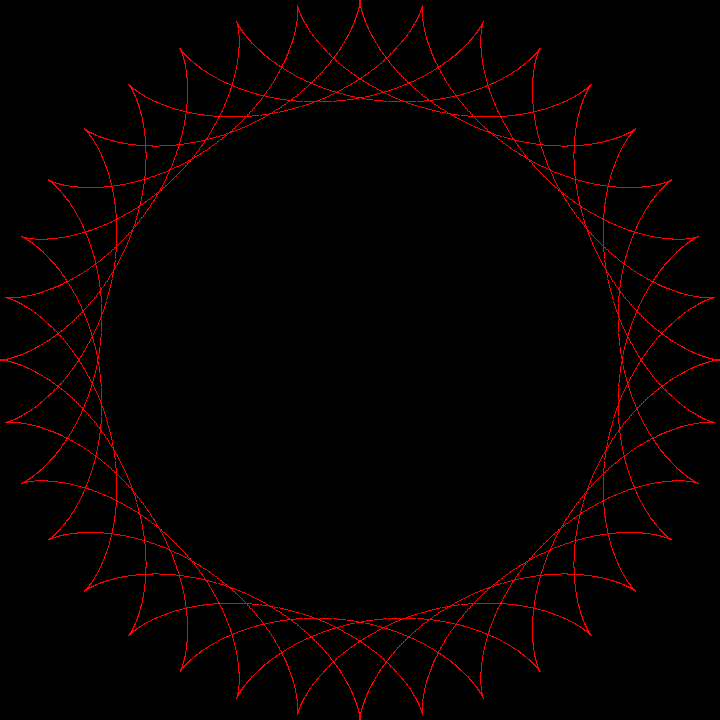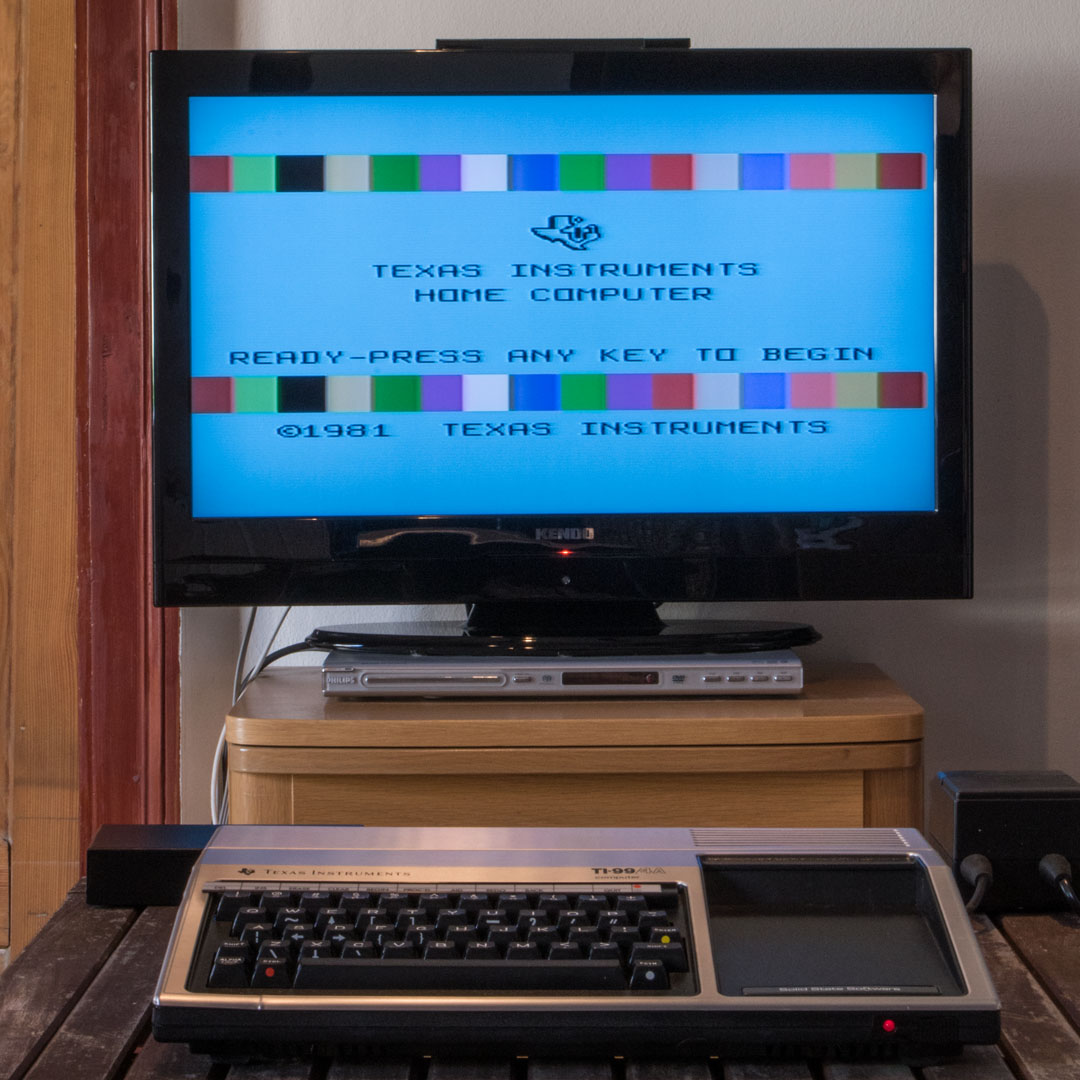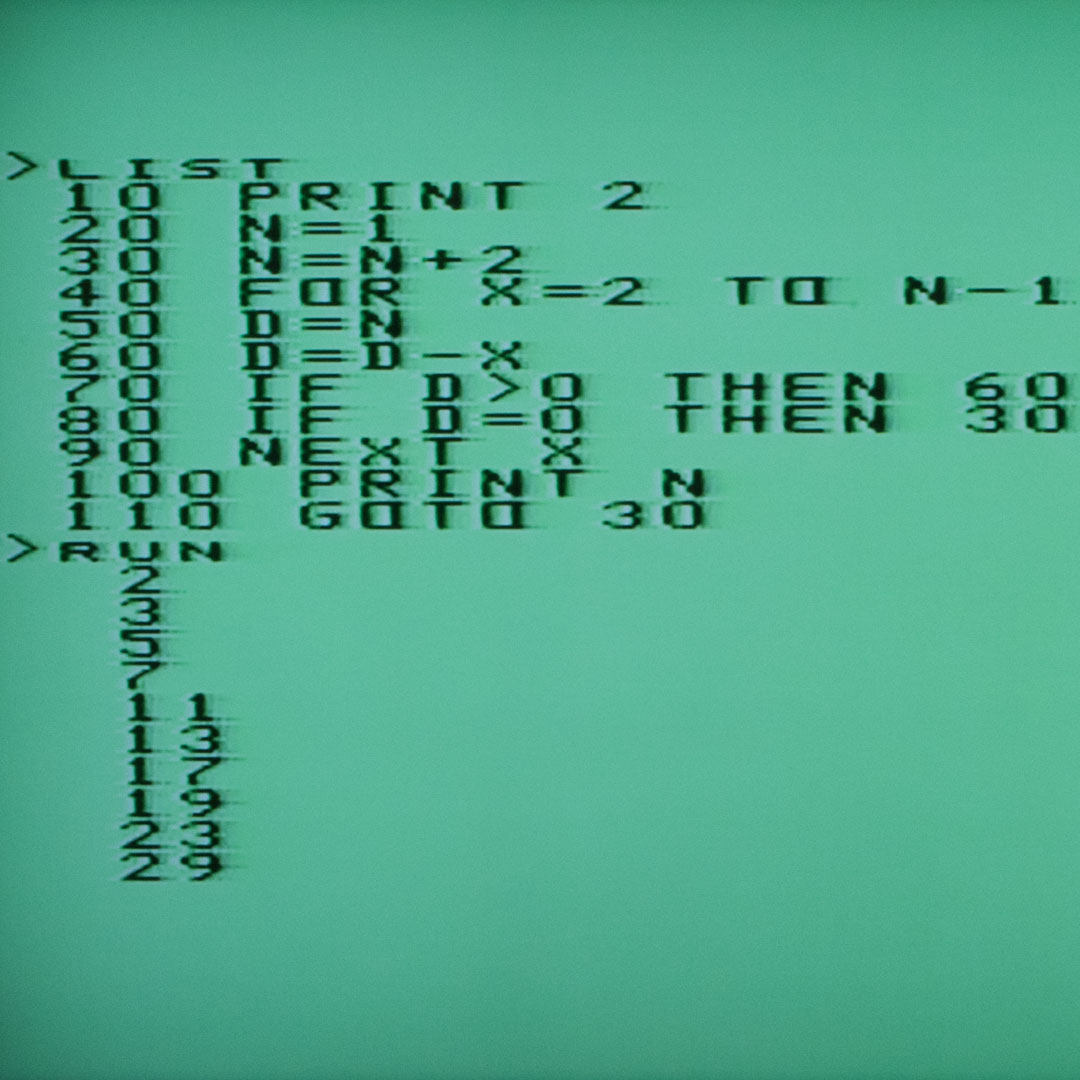2016-07-09, post № 132
games, programming, Pygame, Python, #blue, #color, #colors, #colour, #colours, #green, #guess, #guessing, #red
This is a clone of The Great RGB Guessing Challenge. The challenge works like this: You are presented three numbers ranging from 𝟢 to 𝟤𝟧𝟧 representing a rgb color and three color bubbles. To get a point you must choose the color bubble corresponding to the rgb values. The more points you get, the higher your score.
Controls
- Click on the bubble to choose it.
2016-07-02, post № 131
mathematics, programming, Python, #p(n), #sum
To get a number’s palindrome in a programming language like python is easy. There are ways to swap between integer and string and strings can be manipulated.
>>> n = 1234
>>> int(str(n)[::-1])
4321
But I wanted to create a mathematical function 𝑝(𝑛), which returns an integer’s palindrome. Thus 𝑝(𝟣𝟤𝟥𝟦) = 𝟦𝟥𝟤𝟣.
Firstly, I needed a way of determining the number’s size. In base 𝟣𝟢 the length is calculated using the logarithm to said base.
Secondly, I need a way to isolate a specific digit. Using the floor function, this function returns the 𝑖-th digit (starting on the right with 𝑖 = 𝟢).
Thirdly, both of these functions can be used to split up the number into a sum.
Fourthly, I only need to swap the power of ten at the end to get my palindrome function.
Thus the final function 𝑝(𝑛) is defined.
To check if the formula is correct, I use 𝟣𝟤𝟥𝟦 (as seen above).
2016-06-25, post № 130
games, programming, Pygame, Python, #color, #color memory, #memeory, #memory game, #remember, #sequence, #Simon, #Simon Says
This game is a recreation of the famous game Simon. In the game there are four colors which form a sequence that is expanding every cycle. The aim of the game is to memorize said sequence as far as possible.For more information on the Simon game visit this Wikipedia entry.
Controls
- Click on the colored buttons to press them.
2016-06-18, post № 129
programming, Python, #number words, #numbers, #numbers to words, #numeral, #words
This program takes a number and calculate it’s linguistic numeral.The number 𝟥 returns the numeral ‘three’, 𝟧𝟪 returns ‘fifty-eight’ and 𝟥𝟣𝟦𝟣𝟧.𝟫𝟤𝟨𝟧𝟥𝟧 returns ‘thirty-one thousand four hundred fifteen point nine two six five three five’.
2016-06-11, post № 128
art, haiku, poetry, #anim gif, #animated, #animated gif, #cliff, #fall, #foliage, #gif
A leaf on a tree
gets blown away by the wind
and falls down a cliff.
2016-06-04, post № 127
mathematics, programming, Pygame, Python, #circle, #circles, #curve, #cycloid, #epi, #epicycloid, #geometry, #hypo, #hypocycloid, #rolling, #trace
A cycloid is the curve generated by tracing a point on a smaller circle rolling around an bigger circle.
The word cycloid comes from the greek word “κύκλος” meaning “circle”. There are epicycloids and hypocycloids (smaller circle located above and beneath the bigger circle).
The cycloid is determined by the ratio between the two circle’s radii  .
.
More information can be found on this Wikipedia entry.
2016-05-28, post № 126
BASIC, mathematics, programming,
Using the same method used in my previous Sierpiński Triangle program, which is written in Python, I wrote a fractal generator for my graphing calculator TI-84 Plus in BASIC.
2016-05-21, post № 125
BASIC, mathematics, programming, #old hardware, #prime, #prime generation, #Texas Instruments, #TI
Being a fan of old hardware, I used the TI-99/4A (released in 1981) to calculate some primes.
The code is written in BASIC, the programming language found on most computers of this era.
Further information on the TI can be found in this Wikipedia article.
Posts:
292-285, 284-277, 276-269, 268-261, 260-253, 252-245, 244-237, 236-229, 228-221, 220-213, 212-205, 204-197, 196-189, 188-181, 180-173, 172-165, 164-157, 156-149, 148-141, 140-133, 132-125, 124-117, 116-109, 108-101, 100-93, 92-85, 84-77, 76-69, 68-61, 60-53, 52-45, 44-37, 36-29, 28-21, 20-13, 12-5, 4-1Jonathan Frech's blog; built 2024/11/02 16:03:59 CET
